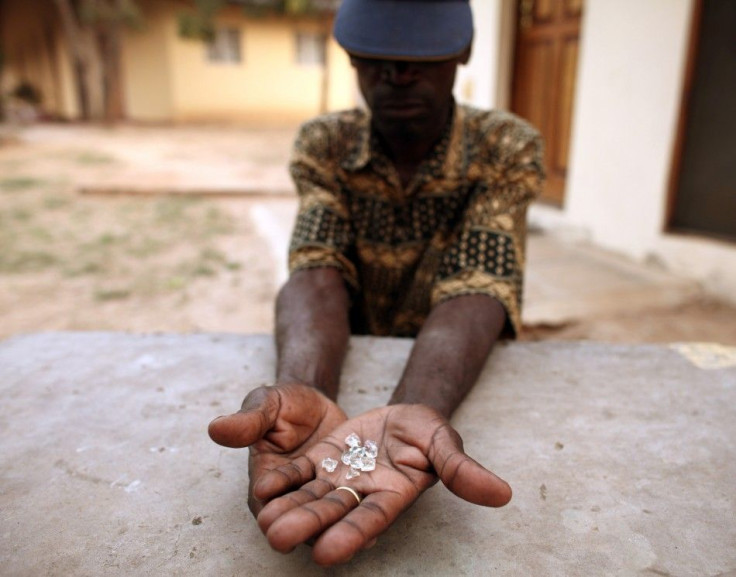Conflict Diamonds’ Regulatory Body Fails to Deliver, Loses Support of Founding Member

Outraged by the Kimberly Process' inability to prevent illegal trade in conflict diamonds (also called blood diamonds) in Africa, a key founding member quit the regulatory body on Monday.
The Kimberly Process Certification Scheme (KPCS) is a process that works towards monitoring the production of diamonds and isolating those mined or produced from areas which have degrees of armed conflict that are funded by the illegal sale of the diamonds themselves. These diamonds - conflict or blood - are mined and sold illegally, to finance armed action, violence and human rights violations in the war-torn regions of Africa, from where two-thirds of the world's diamonds are extracted. The diamonds originate from areas controlled by anti-government forces and, according to the United Nations, are used to fund military action against local governments.
The KPCS, launched in 2003 to stem the flow of conflict diamonds to countries such as Angola, Cote d'Ivoire (Ivory Coast), the Democratic Republic of the Congo and Sierra Leone, has failed three tests, said a top official at Global Witness, an organization established in 1993 that seeks to break links between natural resource exploitation and armed conflict. The organization was the first to raise the issue of conflict diamonds back in 1998.
It failed to deal with the trade in conflict diamonds from Côte d'Ivoire (Ivory Coast), was unwilling to take serious action in the face of blatant breaches of the rules over a number of years by Venezuela and has proved unwilling to stop diamonds fuelling corruption and violence in Zimbabwe, Charmian Gooch, a Founding Director of Global Witness, said in a statement.
The organization added that the KPCS' decision to authorize two diamond smugglers from Zimbabwe's controversial Marange diamond fields to trade in the material was outrageous.
The Zimbabwean army seized control of the area in 2008, killing around 200 miners, Gooch said highlighting incidences of violence caused by conflict diamonds. She went on to say that the trade of conflict diamonds funded the orchestrating of violence during elections in Zimbabwe and the KPCS' refusal to confront the reality was an outrage.
Consumers still cannot be sure where their diamonds come from, nor whether they are financing armed violence or abusive regimes, she continued, urging the diamond industry to hold itself accountable. Consumers have a right to know what they're buying, and what was done to obtain it. The diamond industry must finally take responsibility for its supply chains and prove that the stones it sells are clean, she added.
According to Amnesty International, a U.S.-based Non-Governmental Organization working for human rights, conflict diamonds from West African countries like Côte d'Ivoire and Liberia are reaching the international market, hinting at the failure of the Kimberley Process Certification Scheme.
The World Diamond Council (WDC), an organization representing diamond manufacturing and trading companies, expressed its regret at Global Witness' withdrawal and asked the organization to reconsider its decision. The Council backed Kimberley Process' effectiveness in protecting the integrity of diamonds and diamond mining, as well as improving the lives of people in the areas it is mined and processed.
The system is not perfect, and is in need of constant review. However, you cannot contribute to the process if you are no longer engaged, said Eli Izhakoff, WDC President.
© Copyright IBTimes 2025. All rights reserved.





















